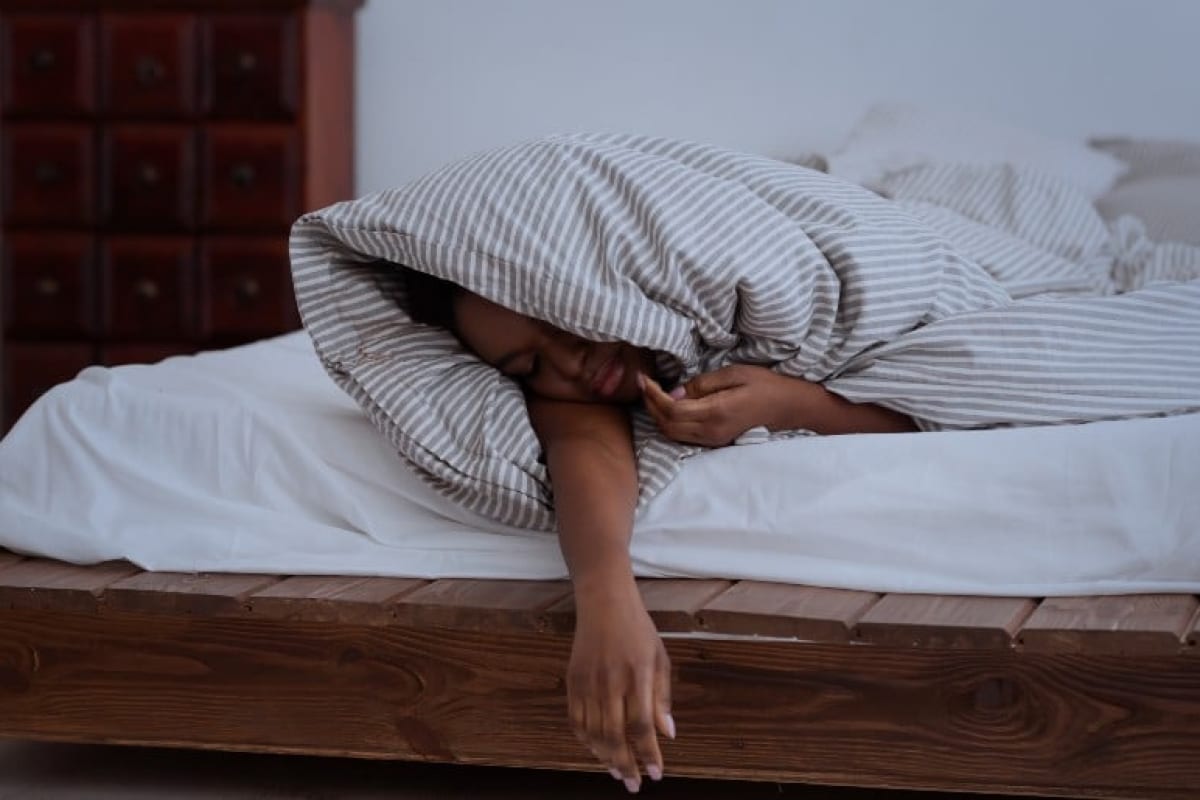CBD Oil For Sleep-Does It Work? (Here’s What The Science Says)
Interest in CBD for sleep has garnered a lot of public attention over the past few years. Back when cannabis wasn’t a part of mainstream conversation, people puffed quietly and carefully. Whether it was too taboo to mention or a matter of the law, discussions about cannabis had a hush-hush air about them.
Now, CBD is everywhere: in gas station check-out lines, infused in food and beauty items, and available online at the click of a button. Those with first-hand CBD experience claim it works for sleep, but what does the science say?
What is CBD oil?
To the eye, CBD oil doesn’t look like much. It’s a gold-green liquid that comes from a plant, leaving one to wonder about the hype. But diving deeper into the science, we learn that CBD is one of more than 100 cannabinoids (compounds) found in both cannabis and hemp plants.
Short for cannabidiol oil, CBD is the second most abundant cannabinoid after THC. The main reason why CBD is so popular has to do with its non-psychoactive effects. Unlike THC, which makes you “high,” CBD is mildly sedative and generally induces subtle feelings of relaxation.
People use CBD for different reasons, in general, for anxiety, sleep, and pain. Additional scientific evidence points to its antiepileptic effects, especially for children living with Lennox-Gastaut syndrome or Dravet syndrome. In 2018, the FDA approved Epidiolex, the first CBD-derived prescription medication available on the market for childhood epilepsy. The breakthrough came as a win for cannabis professionals eager to prove the medicinal benefits of CBD.
Derived from hemp or cannabis (the difference between the two being THC content), CBD is federally legal so long as it contains THC equal to or less than 0.3%. In a nutshell, CBD has the go-ahead from the federal government, although states ultimately make their own rules about CBD distribution.
Does CBD oil for sleep work?
Now on to the big question: how does CBD work? CBD links up with the body’s endocannabinoid system (ECS). In plain language, the ECS is responsible for regulating processes such as sleep, memory, reproduction, appetite, pain, mood, and so much more.
CBD is a phytocannabinoid (phyto- being short for plant). Our bodies naturally produce endocannabinoids (endo- being short for body). To put two and two together, the body’s nervous system produces compounds that behave and bind to receptors, bearing a striking similarity to the way CBD regulates pain and induces sleep.
Scientists know that CBD has an indirect influence on the ECS. Although they’re unable to elaborate in greater detail, knowing that the two are interrelated explains why CBD could make you feel sleepy.
The science behind CBD and sleep
That said, there’s still the issue of funding for clinical trials over a long-term period to access the effect of CBD on sleep quality. That’s why when we talk about CBD, we’re careful to include conditionals such as “may” and “could.”
CBD may help you fall asleep easier. CBD could lower cortisol levels (stress hormones) that cause people with insomnia to stay awake. What’s more, CBD has the potential to help you stay asleep, a major setback for people with irregular REM cycles who repeatedly wake up during the night.
If sleeplessness is keeping you from completing daytime tasks, CBD is a low-risk option for poor sleepers. The side effects are relatively minimal, including dry mouth and additional drowsiness the next morning.
In the scientific community, CBD research is gaining traction as a safe, non-intoxicating supplement with impressive therapeutic qualities.
When to take CBD oil for sleep
How quickly CBD takes effects depends on several factors, such as delivery method, age, weight, and dosage. Generally, you can expect to feel sleepy an hour or two after taking CBD.
The great thing about CBD is that there’s no shortage of options. CBD flower, edibles, topicals, and capsules are among the many forms of delivery methods to choose from. Some are more bioavailable than others, referring to how quickly CBD absorbs into the bloodstream and begins to take effect.
Specifically for sleep, a CBD tincture, such as NYOS’, is more bioavailable since it’s administered under the tongue. This bypasses digestion in the liver, which often causes CBD to lose its efficiency. Taken as a tincture, CBD absorbs directly into the bloodstream through tissues in the tongue.
Finding the best dose to help you sleep takes time and experimentation, but 10-25mg is a safe place to start. Gradually increase the dosage as you become more comfortable with the effects.
To sum it up
The research on CBD and sleep suggests that plant-based nighttime supplements have a place in the bedroom. As more people catch on to the benefits of CBD, plant medicine has the potential to replace over-the-counter sleep aids and help millions get the shut-eye they need to live successful, happy lives.
